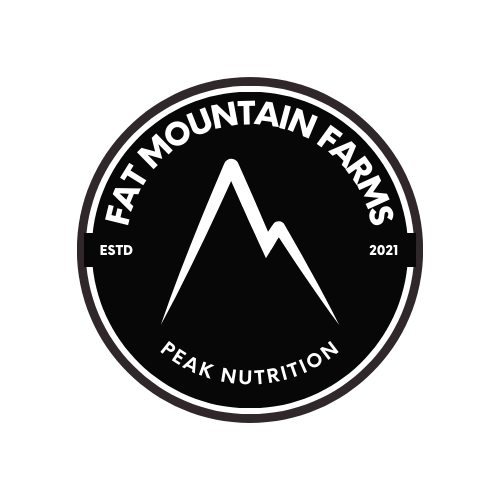If you’ve ever felt confused by food labels, you’re not alone. Terms like "pasture-raised" and "organic" can seem interchangeable, but they mean very different things. Knowing the difference is key to choosing chicken that’s better for your family, the environment, and animal welfare. Let’s break it down.
How to Differentiate Pasture-Raised Chicken from Organic Chicken
Organic chicken is certified by the USDA and must meet specific standards, like being fed organic, non-GMO feed and avoiding antibiotics. However, the label doesn’t guarantee outdoor access or natural living conditions. Many organic chickens are raised in confined spaces with limited, if any, time outdoors.
Pasture-raised chicken, on the other hand, focuses on how the birds are raised. These chickens live outside, foraging on grass, bugs, and grubs in their natural habitat. Farms practicing pasture-raising often exceed organic standards, even though they may not carry the official USDA organic label.
If you’re looking for the healthiest and happiest chickens, look for farms that rotate birds to fresh pastures daily. Labels like “free-range” or “organic” might not tell the full story, so do your homework!
Why Pasture-Raised Chicken?
Pasture-raised chicken isn’t just an ethical choice; it’s also healthier and tastier. Studies show:
- Healthier fats: Pasture-raised chicken has a better balance of Omega-3 to Omega-6 fatty acids, which helps reduce inflammation.
- Lower fat content: It contains 21% less total fat and 30% less saturated fat than conventional chicken.
- Higher vitamins: Pasture-raised chicken is rich in Vitamin A, which boosts your immune system and supports healthy skin and bones.
- Superior taste: Chickens that forage naturally produce meat that’s juicier and more flavorful.
By choosing pasture-raised, you’re also supporting animal welfare, regenerative farming, and local economies.
Pros & Cons of Pasture-Raised Chicken
Pros:
- Higher nutritional value
- Superior flavor
- Ethical and humane farming practices
- Environmental benefits like soil regeneration
Cons:
- Higher price due to labor-intensive farming
- Less availability compared to conventional chicken
- May not always be certified organic
While it might cost more, the benefits to your health and the environment make pasture-raised chicken worth every penny.
How to Tell if I Can Trust a Farm
When buying chicken, trust matters. Here’s how to find farms that truly prioritize pasture-raised practices:
- Ask questions: Does the farm rotate chickens to fresh pasture daily? Are the birds raised without antibiotics or GMOs?
- Take a tour: Many farms are happy to show you around. Seeing the animals and pastures firsthand builds trust.
- Check for transparency: Some farms, like Farmer Focus, offer codes to trace your chicken back to its origin.
At Fat Mountain Farms, we raise our birds on fresh pastures every day, rain or shine. Transparency is key to what we do—so you can feel confident about what’s on your plate.
FAQs About Where to Buy Pasture-Raised Chicken
Where can I buy pasture-raised chicken?
Look for local farms at farmers' markets or online stores that ship pasture-raised products nationwide. Fat Mountain Farms, for example, ships pasture-raised chicken straight to your doorstep across the USA.
Is pasture-raised chicken worth the price?
Yes! The health, taste, and ethical benefits far outweigh the cost difference compared to conventional chicken.
How do I find local pasture-raised chicken?
Search online for regenerative farms in your area, or use directories like EatWild or LocalHarvest.
Can pasture-raised chicken be organic?
Yes, some pasture-raised farms meet organic certification standards. However, many go beyond organic without the label.
FAQs About Fat Mountain Farms
What makes Fat Mountain Farms different?
We’re a family-run farm in North Carolina raising pasture-raised chicken, grass-fed lamb, and beef. We prioritize animal welfare, soil health, and transparency in all our practices.
Do you ship nationwide?
Yes! We ship our pasture-raised chicken and other meats across the USA, so everyone can enjoy high-quality, regenerative products.
Can I visit the farm?
Absolutely! We love giving tours to customers who want to learn more about our practices. Just reach out to schedule a visit.
How to Cook Pasture-Raised Chicken
Cooking pasture-raised chicken is simple but requires a bit of care since it’s leaner than conventional meat.
- Low and slow: Use gentle cooking methods like roasting or braising to preserve moisture.
- Marinate: Add flavor and tenderness with a marinade before cooking.
- Don’t overcook: Pasture-raised chicken cooks faster, so use a meat thermometer to ensure it doesn’t dry out.
Whether roasted, grilled, or slow-cooked, pasture-raised chicken is a delicious and nutritious addition to your meals.
Choosing pasture-raised chicken isn’t just about better food—it’s about supporting better farming practices and a healthier planet. Ready to try some? Visit Fat Mountain Farms today!

